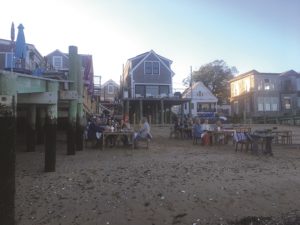PROVINCETOWN — Susan Avellar is the first to arrive at the West End Racing Children’s Community Sailing (WERCCS) clubhouse around 8:30 on a foggy Monday morning. Ms. Avellar, as she has been fondly known by members for more than 30 years, climbs the stairs amid colorful life jackets and ropes with her dog, Andes.
For a moment, there’s only the sound of the sand-covered floorboards and Andes settling into her spot under the balcony table — the clubhouse is perhaps the quietest it will be all day.
“It has its own mystique,” says Avellar, 77, of the building and the program it is home to.
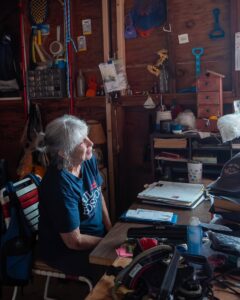
WERCCS, renamed from the West End Racing Club in 2017, has taught local kids ages 8 to 14 knot tying, sailing, racing, and more during the summer for over 70 years. The program is a bargain: $100 per child for the entire summer; additional children in the same family pay $50. WERCCS enrolls 140 to 160 kids annually, according to its website.
Now, it’s approaching a period of transition.
A cohort of younger instructors like Sara Akbari, 32, and Elias Brode, 23, surround Avellar and her fellow lead instructor, Dan Hoeflinger, who has also been teaching at the clubhouse for more than three decades. Avellar acknowledges that she’s “lived a long time” but says she plans to keep teaching as long as she’s physically able.
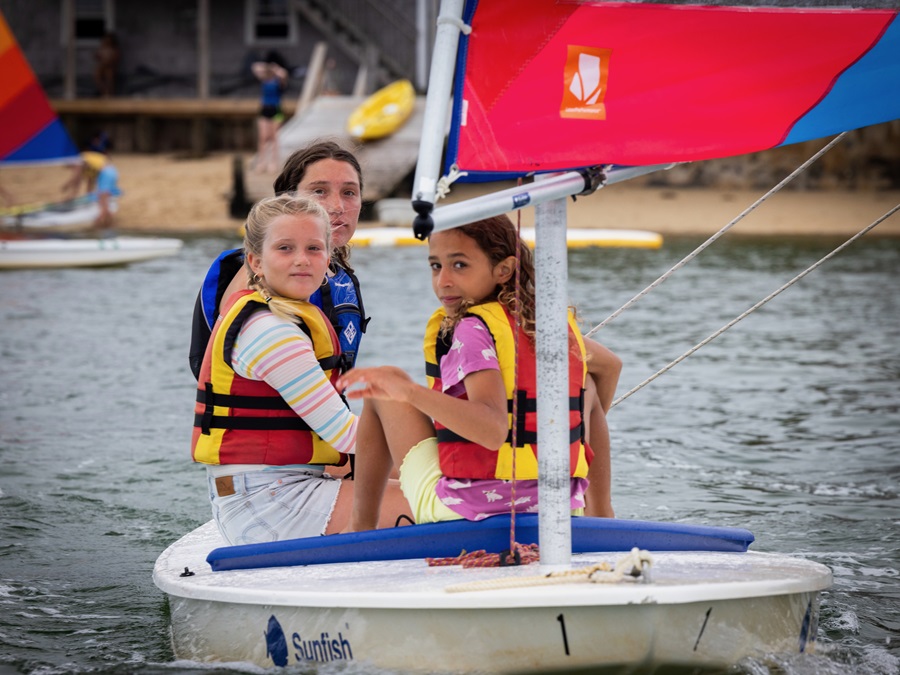
Change is inevitable, but the process is gradual. Akbari says that Avellar and Hoeflinger have been working to build capacity for whatever lies ahead. That includes ceding some responsibilities: Akbari registered some kids this summer for the first time. Hoeflinger has been teaching volunteers to fix up items around the clubhouse.
Still, Akbari says she doesn’t want to imagine a world without Avellar at WERCCS, who along with Hoeflinger makes the program what it is.
Akbari’s experience at the clubhouse began 25 years ago when she spent a week sailing during a childhood vacation in Provincetown. Her family began spending whole summers on the Outer Cape soon after, and Akbari spent that time with her siblings at WERCCS.
She worked seven years for the program before taking a decade-long hiatus. She describes being lured back by Avellar a couple of years ago, although that enticement may have been more of a gentle demand.
“Coming back was an easy decision,” says Akbari, who teaches in Boston during the school year. “I was appreciated for being bossy,” she adds with a laugh.
“It gave her lifelong teaching skills,” Avellar says.
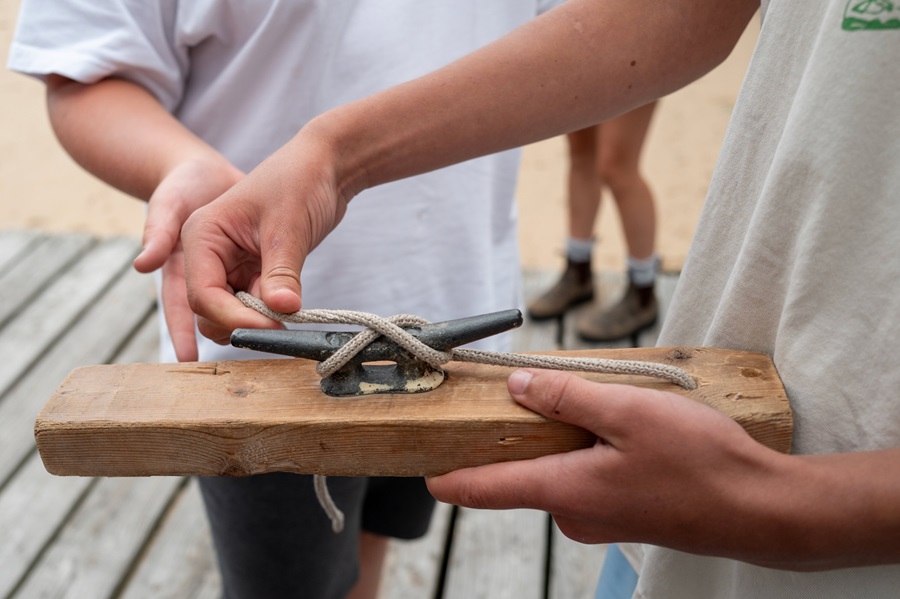
Brode, who is from Uppsala, Sweden, has been coming to Provincetown for the summer for more than 10 years. His grandmother retired on the Cape, and he started coming to the sailing club because of his cousins.
“I very quickly fell in love with the place,” Brode says. Coming to Provincetown and the sailing club was like “another world.” The program has been the foundation for all his relationships in the area, he says.
“It’s been a natural transition from a kid to a skipper to a volunteer and then a counselor,” he says. “I’d love to come back for as long as I can.”
A potential threat to WERCCS’s future comes from just outside its doors. The waterfront property, at 83 Commercial St. in the West End, is vulnerable to rising sea levels. According to Avellar, the property has flooded several times over the past few years. She hopes one day to raise the building to protect it, although there are no concrete plans to do so yet.
“We have some big things to deal with in the future for this program to be able to continue,” Avellar says.
But she remains confident about whatever comes next.
“Somebody will be here, and somebody will sustain the program and see it forward,” Avellar says. “There’s no doubt in my mind.”
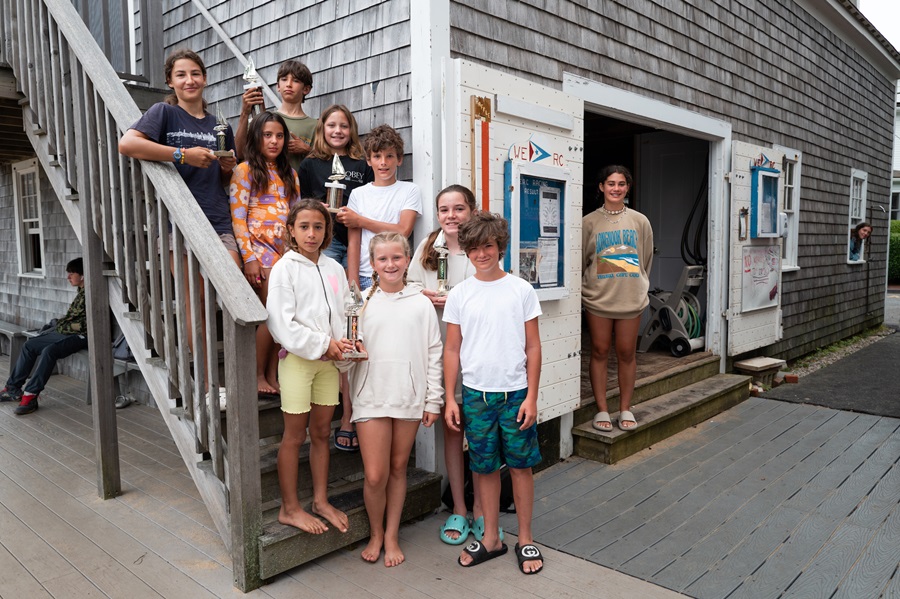
Inside the clubhouse, the program continues to be built on peer teaching, which dates back to its initial days when children informally gathered on “Flyer’s Beach” at program founder Francis Santos’s boatyard.
“When you learned how to sail, if you wanted to sail again, you had to teach somebody else how to do it,” Avellar says.
The fruits of that legacy are clear today. On Tuesday and Thursday sailboat races, children who have passed their skipper’s test and demonstrated they can handle the boat on their own pick another less experienced child to form their crew.
“It’s really fun when people trust me,” says Maddie Gunn, 14, who became a skipper last summer.
At one recent race, the young sailors rounded three marks — red flags weighed down by old sand-filled detergent jugs. The pairs tacked and jibed while dodging moored boats in Provincetown’s protected cove.
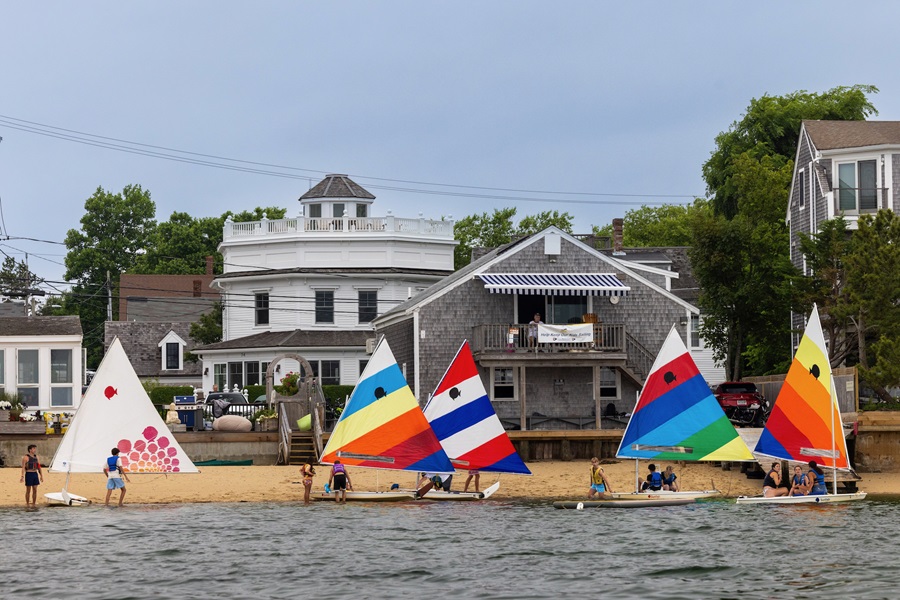
Ryan Fenton-Hilt, 13, belts out a song while passing by the safety boat on one of her laps. She yells as she crosses the invisible finish line in second place in the senior skipper division. The moment was a small indication of her competitiveness, but like many WERCCS students, she wasn’t always this passionate.
“I didn’t really like sailing at all,” Fenton-Hilt says, describing her fearful initial experience with the program. “I just sat up here and did nothing,” she says from the building’s balcony. But a day of practice later, she changed her mind and became a skipper.
Last summer, Fenton-Hilt won the first-place award for junior skipper races. The trophy sits on the desk by her bed. She wants to become a sailing trainer, WERCCS’s version of a counselor, when she’s older. If she does, she will join the ranks of those who just can’t seem to leave the storied West End institution behind.
